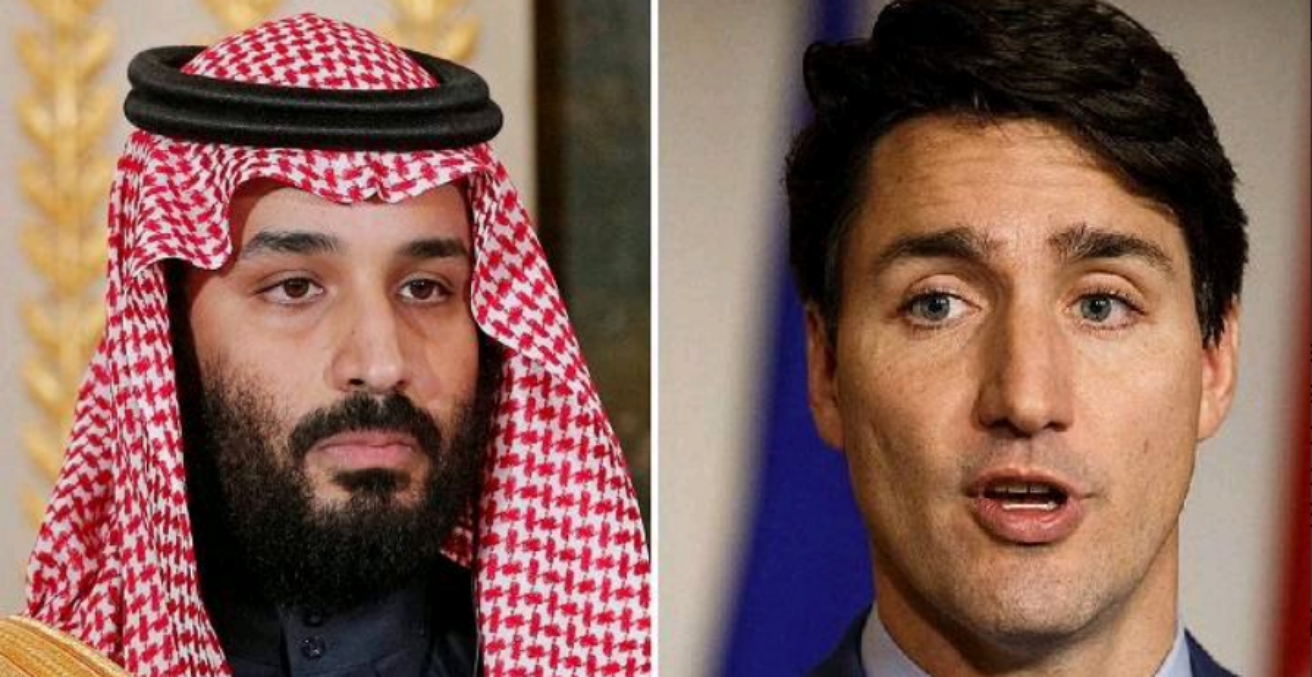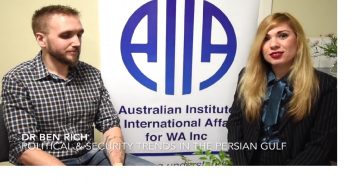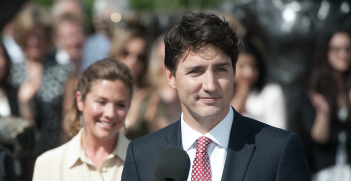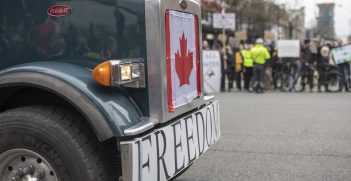Saudi-Canada Twitter Tiff

A recent spat on twitter resulted in a freeze in Saudi-Canada relations, with diplomats expelled and commercial, air and educational links suspended. What exactly happened?
Complaints about human rights violations in Saudi Arabia are not new. Countries like Sweden and Germany have periodically complained to the Kingdom.
Saudi dissident Raif Badawi was arrested in 2012 and convicted of apostasy; his wife and children are now Canadian citizens living in Québec and they have mobilised demonstrations of solidarity for Badawi on a number of occasions.
So why now, after years of slow burn, has this come about?
On 3 August, Canada’s Global Affairs ministry published an incendiary tweet that made mention of Canada’s ’grave concern’ over new arrests of human right activists, including a member of the Badawi family, and ‘suggested’ their immediate release.
A reckless diplomatic blunder
Although the relationship between social media messaging and diplomacy is being studied by academics in Canada and elsewhere, this message appears to have fallen on deaf ears in Ottawa.
Saudi Arabia responded swiftly by severing bilateral ties, claiming that Canada was interfering in the Kingdom’s domestic affairs.
Curiously enough, no other country has stepped up to officially support the Canadian move. Historically, Canadian diplomacy rarely issues declarations or entertains initiatives without diplomatic cover: that is, without other countries supporting its position. That is what middle powers do.
Only US politician Bernie Sanders has made public his support while Canada’s NATO allies and others remain silent. The White House has washed its hands of the affair issuing a bland statement confirming its neutrality in the affair.
This is very odd and it raises the question whether the tweet coming just before a long weekend in Ottawa was planned ahead of time? What does seem clear is that the Saudi response was completely unexpected by the Global Affairs ministry.
Is it possible that we are in the presence of a reckless diplomatic blunder? Since the Liberals have taken power, Canada’s foreign policy blunders are beginning to accumulate. This includes Prime Minister Justin Trudeau’s palatial holiday with the Aga Khan, the India visit hobnobbing with convicted felons and a hastily-planned trade visit to China that ended in fiasco. One shudders to think how the negotiations over the North American Free Trade Agreement (NAFTA) are being conducted.
The consequences of Canada’s tweet
The tweet has damaged Canada’s economy and prestige in several ways.
First, bilateral commercial relations including air cooperation are at an impasse. Direct flights from Saudi Arabia to Toronto have been cancelled indefinitely. Hopes of Canada’s AU$15.6 billion arms sale to Saudi Arabia have also been dashed.
Second, 12,000 Saudi students in Canada (including some 700 Saudi medical students working as doctors in hospitals) will be reassigned to other countries. This defeats the purpose of the government’s attempt to encourage democratisation among new Saudi leaders.
Third, a Security Council seat may be out of the question for Canada in 2020, given the negative reaction of Arab countries and the fact that the Liberal government has not changed the Harper Conservative voting pattern at the UN on the Arab-Israeli conflict.
Fourth, the weakness of support is clear, reflecting the fact that the initiative was not vetted with Canada’s allies.
Finally, Canadian interests were damaged rather than promoted by the reckless and undiplomatic messaging. The vast majority of consular issues like this one are negotiated by diplomats and they do not end in the severing of diplomatic ties.
The devastating consequences and cost of this action are now apparent. To try to say that Canadian interests have been promoted is beyond the pale. Chrystia Freeland, the Minister of Foreign Affairs, has said that Canada always speaks up when human rights are under threat; one might wonder where Canada has been since 2011 during the Syrian conflict while Bashar al-Assad was busy butchering his own people with Russian and Iranian help. Diplomats at post were warned by Ottawa not to intervene to save dissident lives lest Canada be seen to be something less than neutral.
Provoking a diplomatic row through an undiplomatic tweet has put Canadian relations with Saudi Arabia at risk. This is in addition to creating disruptions in an economy already severely tested by US President Trump’s tariffs and the uncertainty of the re-negotiated NAFTA accord with Mexico and the United States.
Using tweets to conduct foreign relations is risky since the practice of diplomacy and the use of Twitter have yet to be harmonised. There is no better example of this than the irrational and irresponsible way in which President Trump has decided to conduct US foreign policy. Twitter does not leave much room for the nuances of diplomatic language that are essential in situations arising in the normal course of relations between countries.
More than a week has passed and both countries have dug their heels in. In terms of outside support, the Saudis are ahead. Canada did not vet the tweet with its allies before sending it in a reckless manner. In a scenario reminiscent of a scene from The Mouse That Roared, the Canadian government continues to deny the obvious. Canada will have to stand down, and this will constitute yet another foreign policy debacle for the Trudeau Liberal government.
Dr Bruce Mabley is the director of the Mackenzie-Papineau Group think tank based in Montreal devoted to analysis of international politics. He is a former Canadian diplomat and is decorated by the French Republic as Chevalier des Palmes Académiques.
This article is published under a Creative Commons Licence and may be republished with attribution.





